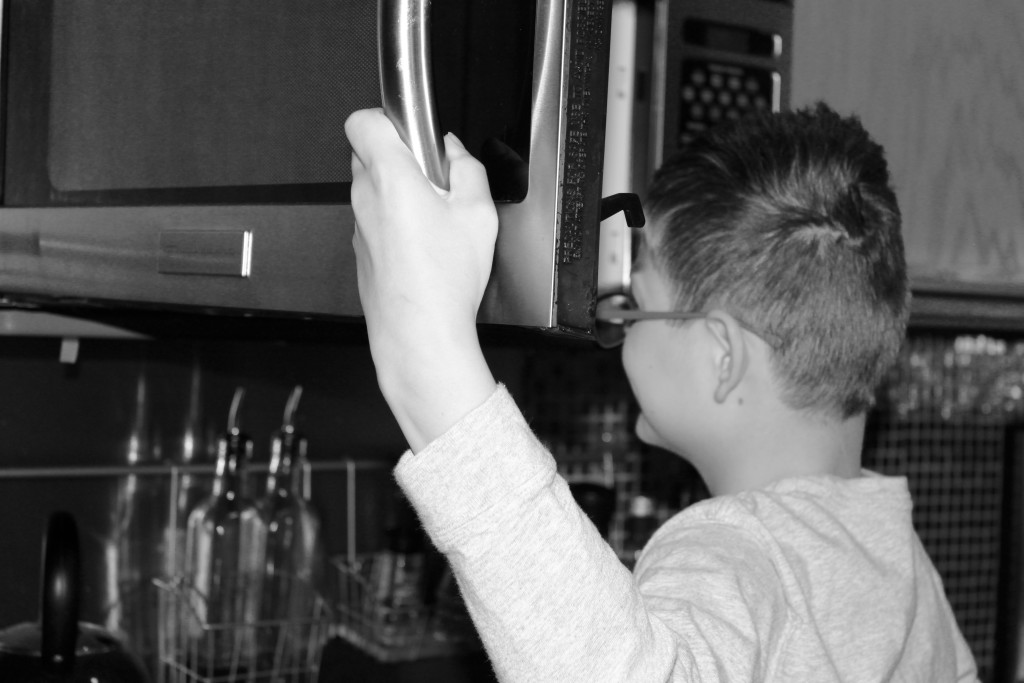I hear feet shuffle into the kitchen. Next, the pantry door creeks open and close. A few seconds later, the refrigerator doors open and I hear the maneuvering of containers and jars rattle, then the doors close and another door clicks open. I sit perfectly still, listening and begin preparing mentally for the classic phrase, “How long do I put this in the microwave for?”
Ahh, that one dreadful timeless question that forces me to re-examine every single life choice that led up to this particular moment. I’m not sure how I became the designated microwave timing expert in our house, but none the less, like most of you, I am. Even the appropriated button on the microwave clearly stating, POPCORN or REHEAT dinner, obviously cannot be trusted. However, we alone, moms and wives, can be entrusted with this pondering wonderment. On a snarky day, I might respond purposefully with a hypothetical time of “too long”, and even when the food starts exploding in its confined ultra powered box, I am still not relieved of this duty. I don’t take this microwave time telling responsibility lightly, and I do consider it a courtesy to my future daughter-in-law to eradicate this particular question from my son’s curiosity.
Scientific experimentation with kids is often difficult for a control freak to let happen in her kitchen. I know this first hand. So when this dreaded question of timing comes up, I annoyingly withhold my expertise. I let our son attempt to handle this on his own, all the while, I am still somewhat in control of this environment. Decision-making can be overwhelming for kids – so can follow-through. For example, the multiple opening and closing of the refrigerator, cross referencing that the item he selected isn’t on the menu for this week and is something healthy he can have for a snack requires astute attention not to mention the necessary skill to prepare the snack. The microwave allows me to teach our son to learn a basic life skill in a relatively safe place.
Attempts and failures along with mess-ups and clean-ups are all part of his learning process. He learns the value of estimation, he remembers the tragedy of a minor catastrophe, and relishes hard-earned successes. All of these are of his own making. When I withhold my expertise, even in this minor way, I allow him to become a problem solver – and most importantly – an independent thinker and do-er.
Here are a few other ways we promote independence without me losing my mind:
- Redistribution and repackaging of goods (cereal and milk especially) helps to alleviate the stress in those crazy pre-coffee moments in the morning.
- Small kitchen utensils with rubber grips helps me get over my fear of metal on Teflon and distinguishes a place of prestige of being able to help in my kitchen.
- We never yell, punish or get angry over an accident. Typically, our son already feels terrible enough, he doesn’t need our grief too. This is one way we demonstrate that he can mess up–literally, and we will still love him regardless…and EVERYONE has to cheerfully help clean up, no matter who or what was spilled.
- Laminate floors, hand-me-down towels under the kitchen sink, and Clorox wipes…enough said.
Allowing myself to pass on all of this expert wisdom finally pays off when I hear our son reply, “Try one minute twenty seconds, dad,” and the microwave beeps as my husband punches the buttons.

















